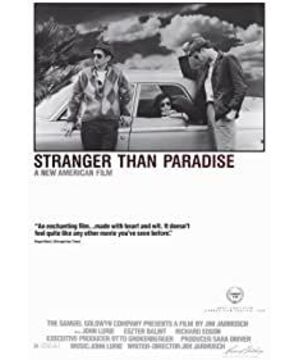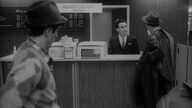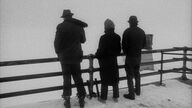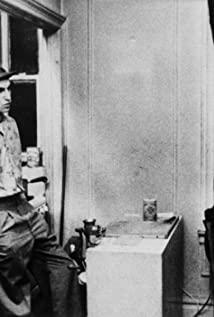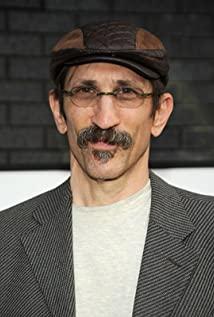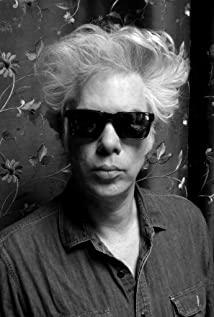The platter-like plot and the trivial road-type elements all the way, each character is lonely and alienated, playful, indifferent, unreasonable, walking aimlessly, talking, sluggish, space and time in the trivial "eyes closed is the end. ” has become a simple splicing piece after piece, black and white images and fixed long shots, so that the time is complete and at the same time brings out the state of loneliness and sluggishness, the pale and aimless life trajectory and fragmented emotional expression, all confirmed Embarrassment is the norm in life.
The traditional montage method focuses on the different meanings brought by the connection between each shot, so as to complete the immersion of the image and the input of the viewer. Jarmusch deftly uses seemingly clumsy black screen transitions to break up the continuity, and the connection without any skill is replaced by a Brecht-esque effect of alienation and a wonderful sense of alienation - "All narrative purposes It’s not about telling the audience a complete story, but trying to present a state of the characters and create an atmosphere of loneliness.”
Willie and Ava are undoubtedly foreigners in the dual sense of geography and spirit. Even after eating TV meals, driving American cars, and unveiling the nihilistic veil of consumerism, they are still spiritual "others". Just as Jarmusch said: "I want to put all my films on the fringes, outsiders." Nowhere to go, nowhere to go, nowhere to turn, life is like a footless bird suspended in the passage of time and space, "Rootlessness" is deeply rooted between the body and the spirit. Willy rejected the Hungarian native language countless times, and tried to confirm his identity as an "American resident" with an attitude of rejection. "Identity" becomes even more ambiguous. "In the process of creating oneself and in the practice of life, people are always in a state of restlessness. Life is full of terror, boredom, depression and despair." The last ten minutes of separation made the story full of indifference and drama. Individuals are always in a state of exclusivity, separated in brief coincidences.
As a writer-director under the influence of the new wave, Jarmusch abandoned the traditional Hollywood narrative mode and shooting techniques, and more "emphasized the interaction and mutual influence of characters, events and the real environment, and paid attention to people's appearance and inner living state". The representational state of minimal art. The mental predicament is presented in a cold lens language: static long shots, close-up and long-range shots, coupled with fragmented narratives, the outbreak of accidental events, absurd but not unexpected - those who are dominated by impermanent fate are destined to wander, do not know where they come from, I don't know where the distance is.
The American director who is most like a European director, the ambiguity makes the direction blurred, perhaps this is the image charm of Jarmusch.
View more about Stranger Than Paradise reviews


